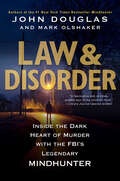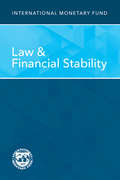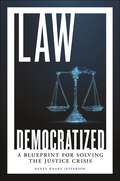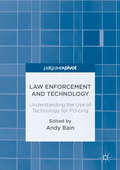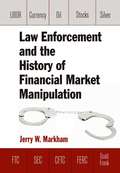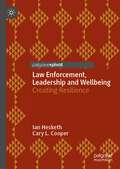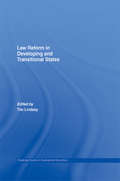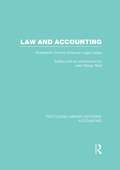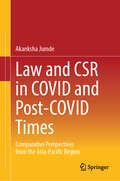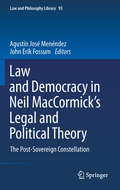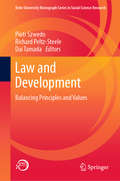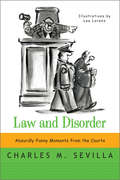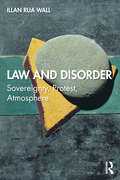- Table View
- List View
Laura Ashley and Federal Express Strategic Alliance
by Gary W. Loveman Robert T. AnthonyIn an effort to improve its global distribution system and thus enhance customer service in its shops around the world, Laura Ashley entered into a path-breaking strategic alliance with Federal Express Business Logistics Services. Under the terms of a loosely structured partnership, Federal Express essentially takes over the warehouse and distribution activities formerly handled by Laura Ashley. The alliance is path breaking due to its largely informal structure, based more on trust and mutual benefit than on complicated rules and measures.
Laura Martin: Real Options and the Cable Industry
by Peter Tufano Mihir A. DesaiCSFB equity research analyst Laura Martin publishes a report on valuing Cox Communications that introduces an innovative approach to valuation. She contends that EBITDA multiple analysis, typical for the cable industry, is flawed because it overlooks the value of the "stealth tier" (unused capacity on cable companies' fiber optic network). Martin proposes using real options valuation to impute value to the stealth tier, and she thereby arrives at a higher valuation for Cox stock. This provides the context for contrasting several valuation methodologies--traditional DCF analysis, regression-based ROIC and multiple analysis, and real option theory--and assessing how selected assumptions impact the various valuation techniques. In particular, Martin reviews ways in which the industry is evolving and students can think about how these changes impact which valuation method is most appropriate. More generally, this case provides a context for discussing the role of equity research analysts, highlighting all the constituencies they serve and how this can create conflicts of interest. Martin's application of real options theory provides an opportunity to evaluate where it works, where it doesn't, and why.
Laura Wollen and ARPCO, Inc.
by Mary GentileLaura Wollen, a group marketing director for ARPCO, Inc., must decide whether to recommend a high performance product manager for a choice position overseas. The supervisor overseas resists the hire because of the candidate's race and Wollen fears that insisting will set her candidate up for failure. On the other hand, she believes she is the best candidate and should not be denied the position.
Law & Disorder: Inside the Dark Heart of Murder
by Mark Olshaker John DouglasThe legendary FBI criminal profiler and inspiration for the hit Netflix show Mindhunter offers a personal look into the workings of the justice system.&“At the top of his form.&” —James Patterson For the first time since his retirement, the #1 New York Times–bestselling author of The Killer Across the Table and The Killer&’s Shadow teams up with award-winning author Mark Olshaker to delve into his most notorious and baffling cases, showing what it&’s like to confront evil in its most monstrous form. No one is better acquainted with the subject of humanity&’s most notorious crimes and the wrenching challenges of bringing those criminals to justice than John Douglas, the model for Agent Jack Crawford in The Silence of the Lambs.In this provocative and deeply personal book, the most prominent criminal investigator of our time recounts his twenty-five-year FBI career tracking down master criminals, writing true crime bestsellers, and developing forensic science and the art of criminal profiling. In his earlier works, Douglas wrote only about the guilty; in Law & Disorder, he writes about the guilty, innocents accused, and even innocents convicted as he addresses every law enforcement professional&’s worst nightmare: those cases where, for one reason or another, justice was delayed . . . or even denied. A deep glimpse into the mind of a man who has explored the heart of human darkness, he looks tounlock for his readers the ultimate mystery of depravity and the techniques and approaches that have countered evil in the name of justice throughout his career. &“An essential title for those interested in true crime stories, forensic science, or law enforcement.&” —Library Journal (starred review)
Law & Financial Stability: Restoring Financial Stability--the Legal Response (Seminar Volumes Ser. #6)
by International Monetary FundA report from the International Monetary Fund.
Law Among Nations: An Introduction to Public International Law
by Gerhard Von Glahn James Larry TaulbeeOffering a more accessible alternative to casebooks and historical commentaries, Law Among Nations explains issues of international law by tracing the field's development and stressing key principles and processes. This comprehensive text eliminates the need for multiple books by combining discussions of theory and state practice with excerpts from landmark cases. Renowned for its rigorous approach and clear explanations, Law Among Nations remains the gold standard for undergraduate introductions to international law. Learning Goals Trace the development of International Law through key principles and processes. Illustrate important issues and theories using excerpts from landmark cases.
Law Democratized: A Blueprint for Solving the Justice Crisis
by Renee Knake JeffersonA practical plan for providing legal help to all, regardless of resourcesMillions of people in the United States face legal problems without lawyers to help them. Why? How do we educate and inform the public about the law so they can understand when the services of a lawyer are necessary or desirable? When can individuals solve legal problems on their own or with the assistance of a specialist without a traditional law degree? In short, how do we democratize the law?Law Democratized offers a blueprint to increase legal help for everyone, regardless of their ability to pay. Building on more than a decade of research into innovation in legal services, the book advances a series of recommendations inspired by success stories from around the globe. Renee Knake Jefferson outlines different paths pursued by bar associations, courts, entrepreneurs, law schools, nonprofits, and others, evaluating the promise and pitfalls of each. She analyzes regulatory reforms employed in other nations, along with emerging efforts in a handful of US states.If the rule of law is the bedrock that American democracy rests upon, then the justice transformed system must be open and user-friendly to all. Law Democratized makes a compelling argument for transforming the American legal landscape through engaged citizenship, ethical innovation, expanded education, and regulatory reform, in order to democratize law and make legal help more accessible.
Law Enforcement and Technology: Understanding The Use Of Technology For Policing
by Andy BainThis edited book explores the history, development and use of technology in the policing of society, showing that technology plays a key, if not pivotal role in the work of law enforcement. The authors analyse several examples of technology in common use today, which include both officers' equipment and technology used by crime scene investigation teams. They discuss the supportive role that technology plays in the investigation process as well as the concerns that may arise from a reliance upon technological advances. The book offers the reader a unique look at the scholarly and professional experience, with chapters written by academic researchers, as well as a number practitioners from the field of policing. It is essential reading for all those interested in a constantly changing and evolving field with implications for both theory and practice.
Law Enforcement and the History of Financial Market Manipulation
by Jerry MarkhamFirst Published in 2014. Routledge is an imprint of Taylor & Francis, an informa company.
Law Enforcement, Leadership and Wellbeing: Creating Resilience
by Cary L. Cooper Ian HeskethThis book provides practical guidance on establishing wellbeing services and interventions within policing for all of those working in law enforcement, particularly leaders and HR professionals. It also offers insight, provokes thought, and gives guidance on how to navigate and get the most from working life as a police officer or member of police support staff. With a focus on the modern working environment, the book covers the key concepts, history, and practical advice necessary for all those interested in this fascinating field of law enforcement. As workplaces become ever more complex and ambiguous, and the world of work ever more dynamic, understanding how organizations behave and how those in the workplace are likely to respond is key to bringing meaning and purpose to work, the cornerstone of effective policing. The book details how to effectively measure workplace wellbeing in policing and how to interpret and use findings to make improvements and craft interventions. It is a key text for exploring law enforcement, leadership, and wellbeing within policing for all those involved with law enforcement, as well as HR professionals, occupational health professionals, and critically, those with police line management responsibilities.
Law For Business And Personal Use
by John Adamson Amanda MorrisonExplore the foundations of business law as well as the application of legal concepts to everyday life. LAW FOR BUSINESS AND PERSONAL USE, 19E, combines strong content and interactive technology with consistent, proven instruction to maintain student interest and support active learning. Coverage includes contracts, criminal law, environmental law, family law, and consumer protection. With more than 1,000 cases, LAW FOR BUSINESS AND PERSONAL USE, 19E, offers plenty of opportunities for case analysis and research.
Law Office Management For Paralegals (Aspen Paralegal)
by Laurel A. VietzenLaw Office Management for Paralegals, Fourth Edition is a comprehensive introduction to law office management, emphasizing ethics, law office culture, law office systems, and “soft skills,” such as communications and critical thinking. Assignments are drawn from real-world law office management situations and supported by innovative visual aids and learning tools. Students get hands-on practice with timekeeping, conflicts-checking, file management, trust accounting, business planning, correspondence, and much more. They are exposed to law office software, such as Clio, and learn to perform vital functions using other software and even freeware. Career profiles emphasize the importance of involvement in professional organizations, advancement in the legal field without obtaining a law degree, and that the legal profession is populated by men and women of all ages and backgrounds. New to the Fourth Edition: New ethical discussions: the obligation to keep up with current technology, disaster planning, and dealing with clients using crowdfunding. New technology discussions: artificial intelligence in legal practice, online notarization, client portals, and apps to make the practice of law more efficient and mobile. New discussions of law as a business: features of property insurance, malpractice insurance, insurance for and on employees; trends in office space. New soft skills discussions: dealing with incivility in the legal profession, managing staff through technology changes. Professors and students will benefit from: Author Laurel A. Vietzen’s outstanding reputation in the paralegal market. Drawing on her extensive background as a professor and practitioner, she clearly presents basic law office management and organization. Well-crafted assignments throughout the text help students hone practical skills such as critical thinking, organization, general communication, and computer proficiency. The text is particularly adaptable for an online or hybrid class.
Law Reform in Developing and Transitional States (Routledge Studies in Development Economics #54)
by Tim LindseyLaw reform in developing countries has become an increasingly topical subject in recent years. A critical issue is why so many law reform projects in developing economies are regarded by their sponsors and recipients as unsuccessful. This informative book: examines examples of law reform projects in post-socialist and post-authoritarian states in Asia identifies common problems proposes analytical frameworks for understanding the problems identified. Though parallels between Asian models and those in developing states elsewhere in the world are strong, the book has been developed to avoid suggestion that the issues covered are somehow peculiarly ‘Asian’- indeed, it is shown that cultural relativist approaches to Asia are unsustainable. This is an invaluable reference for those involved in the areas of development economics, Asian studies and comparative politics.
Law and Accounting: Nineteenth Century American Legal Cases (Routledge Library Editions: Accounting)
by Jean Margo ReidThis book contains 53 nineteenth century American legal cases in which courts discussed accounting issues. Some are well known: Wood v. Drummer (1824) was the foundation for the idea that capital could not be returned to shareholders and it was this restriction which made it necessary to distinguish between income and capital. The famous case of 1849, Burnes v Pennell is often cited as the source of the rule that dividends cannot be paid except from profits. However, many of the cases covered in this book are not well-known. It is often assumed that few American legal cases on accounting matters were decided in the nineteenth century. However, many of the 53 cases included here preceded the earliest British legal cases that discussed accounting issues and they are interesting for several reasons. They show that government regulation of accounting pre-dated the modern regulatory ear. They also illustration that sometimes private contracts specified a particular accounting treatment and that accounting, therefore, served to define private rights. They also illustrate that American courts discussed accrual accounting problems as early as 1837 and that a cash concept of profits was not the norm.
Law and Accounting: Pre-1889 British Legal Cases (Routledge Library Editions: Accounting)
by Jean Margo ReidThis book contains edited versions of thirty British legal cases involving accounting issues decided from 1849-1888. These cases are a valuable source of information about the development of accounting principles and practices in nineteenth-century Great Britain. The thirty cases show that the court decisions involved a rich variety of accounting issues. In some cases courts upset private contractual stipulations regarding accounting and dividend matters. In others, management was held to have used incorrect principles in computing profits. Whether or not a contract or management decision was upset, the courts often discussed at some length the principles that management should apply in the preparation of balance sheets or income statements. It is therefore obvious that in resolving issues of equity among participants in British companies, the courts were applying normative accounting principles.
Law and CSR in COVID and Post-COVID Times: Comparative Perspectives from the Asia-Pacific Region
by Akanksha JumdeThis book presents a comprehensive examination of the impact of COVID and post-COVID times on Corporate Social Responsibility (CSR) compliance and related legal frameworks in the Asia-Pacific region. The book utilizes various research methodologies to analyze corporates' responses to legislative and regulatory frameworks on CSR during the COVID pandemic. Focusing primarily on countries including China, India, Indonesia, and Australia, the book delves into the contrasting approaches taken by these nations in enforcing and regulating CSR. While some countries adopt hard law measures to ensure socially responsible behaviors, others rely on normative approaches such as the ASX Listing Rules. Through a combination of comparative doctrinal analysis and empirical socio-legal-based research methods, the book assesses the state of CSR compliance in selected countries. By analyzing companies' CSR disclosures and conducting interviews with stakeholders, the study identifies gaps in the existing legal literature. The book fills these gaps by offering practical recommendations to enhance policy development and strengthen the legal frameworks. It emphasizes the importance of corporate culture in influencing CSR-related activities. In conclusion, this book provides valuable insights into how companies can better comply with CSR regulations and improve their societal impact.
Law and Democracy in Neil MacCormick's Legal and Political Theory: The Post-Sovereign Constellation
by John Erik Fossum Agustín José MenéndezThis volume offers a collection of articles by leading legal and political theorists. Originally intended as a celebration of MacCormick's work on the occasion of the completion of the four-volume series on Law, State and Practical Reason, it has turned into a homage and salute after MacCormick's passing. Cast in MacCormick's reflexive spirit, the book presents a critical reconstruction of the Scottish philosopher's work, with the aim of revealing the connections between law and democracy in his writings and furthering his insights in each specific field. Neil MacCormick made outstanding contributions to the understanding of law and democracy under conditions of pluralism. His institutional theory of law has elucidated the close connection between the normative character of law as a means of social integration and legal social practices. This has produced a synthesis of the key insights of the legal and political theories of Kelsen, Hart, Alexy and Dworkin, and has broken new ground by undermining the 'monolithic' and 'nation-state' centered character of standard legal theories.
Law and Development and the Global Discourses of Legal Transfers
by John Gillespie Pip NicholsonThis volume of essays contributes to the understanding of global law reform by questioning the assumption in law and development theory that laws fail to transfer because of shortcomings in project design and implementation. It brings together leading scholars who demonstrate that a synthesis of law and development, comparative law and regulatory perspectives (disciplines which to date have remained intellectually isolated from each other) can produce a more nuanced understanding about development failures. Arguing for a refocusing of the analysis onto the social demand for legal transfers, and drawing on empirically rich case studies, contributors explore what recipients in developing countries think about global legal reforms. This analytical focus generates insights into how key actors in developing countries understand global law reforms and how to better predict how legal reforms are likely to play out in recipient countries.
Law and Development in East and South-East Asia
by Christoph AntonsDuring the 1980s and 1990s Asian 'developmental states' attracted much attention in political science and economics literature, but the role of law in the economic development was neglected. It was only after the Asian crisis of 1997 that many analysts began to focus on a lack of regulation and transparency as a major factor triggering the crisis. The crucial questions now are how successful the current reforms will be, and which features of the Asian approach to commercial law will be resistant to reform pressures. This book examines the prospects for commercial law reform in Asia, giving particular attention to Japan and Singapore, as frequently cited role models for Asian developmentalism, and also examining development related business laws in countries such as China, Korea, Indonesia, Malaysia, Vietnam and the Philippines.
Law and Development: Balancing Principles and Values (Kobe University Monograph Series in Social Science Research)
by Dai Tamada Piotr Szwedo Richard Peltz-SteeleThis book examines the concept of ‘development’ from alternative perspectives and analyzes how different approaches influence law. ‘Sustainable development’ focuses on balancing economic progress, environmental protection, individual rights, and collective interests. It requires a holistic approach to human beings in their individual and social dimensions, which can be seen as a reference to ‘integral human development’ – a concept found in ethics. ‘Development’ can be considered as a value or a goal. But it also has a normative dimension influencing lawmaking and legal application; it is a rule of interpretation, which harmonizes the application of conflicting norms, and which is often based on the ethical and anthropological assumptions of the decision maker. This research examines how different approaches to ‘development’ and their impact on law can coexist in pluralistic and multicultural societies, and how to evaluate their legitimacy, analyzing the problem from an overarching theoretical perspective. It also discusses case studies stemming from different branches of law.
Law and Development: Theory and Practice (Routledge Studies in Development Economics #26)
by Yong-Shik LeeThe book examines the theory and practice of law and development. It reviews the evolution of law and development studies and presents a general theory of law and development. The general theory sets the conceptual parameters of "law" and "development" and explains the mechanisms by which law impacts development. In the second part, the book applies the general theory to analyze the development cases of South Korea and South Africa from legal and institutional perspectives. The book also adopts, for the first time, the law and development approaches to analyze the economic issues of the United States. It discusses why it is critical to develop the Analytical Law and Development Model or "ADM."
Law and Disorder on the Narova River: The Kreenholm Strike of 1872
by Reginald E. ZelnikReginald Zelnik uses a single episode—a militant strike at the Kreenholm factory, Europe's largest textile plant—to explore the broad historical moment. In examining this crucial event of Russian history he sheds fresh light on local power relations, high politics in St. Petersburg, controversies over the rule of law, and the origins of the Russian labor movement. Zelnik sees this pivotal moment in Russian labor history as the beginning step in the series of conflicts that eventually led to the upheavals of the early twentieth century.
Law and Disorder: Absurdly Funny Moments from the Courts
by Charles M. Sevilla Lee LorenzMore hilarious, unbelievable-but-true stories from our nation's courts, from the author of Disorder in the Court and Disorderly Conduct. Charles M. Sevilla finds comic gems in court transcripts-- and now brings readers a delightful, all-new collection. Starting with a chapter on the defendants (one of whom, when asked his marital status, replies after a long pause, "Adequate") and following with sections on lawyers, experts, witnesses, evidence, and even one called "Malaprops" (DA: The status of the boat has no relevance to this case at all. This is a total fishing expedition). Stories from the previous books have become viral Internet sensations, priming readers for more legal disorder, such as: Clerk: Do you solemnly swear that the testimony you are about to given in the cause now pending before this court shall be the truth, the whole truth, and nothing but the truth, so help you God? Witness: Yes, I swear. I'll say anything but the truth, nothing but the truth.
Law and Disorder: Sovereignty, Protest, Atmosphere
by Illan rua WallFocusing on the moment when social unrest takes hold of a populace, Law and Disorder offers a new account of sovereignty with an affective theory of public order and protest. In a state of unrest, the affective architecture of the sovereign order begins to crumble. The everyday peace and calm of public space is shattered as sovereign peace is challenged. In response, the state unleashes the full force of its exceptionality, and the violence of public order policing is deployed to restore the affects and atmospheres of habitual social relations. This book is a work of contemporary critical legal theory. It develops an affective theory of sovereign orders by focusing on the government of affective life and popular encounters with sovereignty. The chapters explore public order as a key articulation between sovereignty and government. In particular, policing of public order is exposed as a contemporary mode of exceptionality cast in the fires of colonial subjection. The state of unrest helps us see the ordinary affects of the sovereign order, but it also points to crowds as the essential component in the production of unrest. The atmospheres produced by crowds seep out from the squares and parks of occupation, settling on cities and states. In these new atmospheres, new possibilities of political and social organisation begin to appear. In short, crowds create the affective condition in which the settlement at the heart of the sovereign order can be revisited. This text thus develops a theory of sovereignty which places protest at its heart, and a theory of protest which starts from the affective valence of crowds. This book’s examination of the relationship between sovereignty and protest is of considerable interest to readers in law, politics and cultural studies, as well as to more general readers interested in contemporary forms of political resistance.

